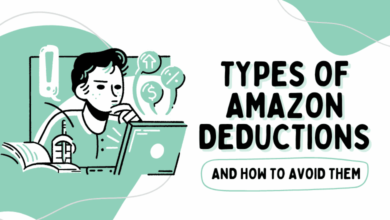Financial Pros and Cons of Not Getting Married

People often view marriage as a bond between two people, a symbol of their love for one another. The real definition of marriage is that it’s a legally binding event tying two people together. This means their money, their assets, and their children are now legally bound.
This means when you are deciding whether to marry the person you love, there’s a lot more that goes into it than whether you want to spend your life with them. You can enjoy the relationship you have with someone without having to get married, but there are many benefits to matrimony. There are also some downsides that need to be discussed.
Unmarried auto insurance, not getting health benefits from a spouse’s employer, and several other topics need to be talked about to hash out the financial pros and cons of not getting married. We’ll discuss these and others so you can decide what is best for your relationship.
Pro #1 – You Don’t Have to Share Auto Insurance
Most auto insurance companies expect married people to share a joint policy because many couples use the same vehicles and live in the same house. One of the advantages of not getting married is insurance companies will be more lenient in their expectations about combining auto insurance policies.
Some unmarried couples opt to live apart, therefore they don’t share the same vehicles and wouldn’t need to share the policy. This puts the ball in each person’s court, meaning they aren’t held accountable for the actions of their partner. When married couples share insurance, one person getting into an accident will increase rates for both people.
Con #1 – You Don’t Get as Many Insurance Discounts
Getting married to someone who has a clean driving record and combining your coverage with them will present opportunities for many insurance discounts. Most big companies provide insurance bundling for couples and this presents you with cheaper insurance in the long run.
You could save hundreds or even thousands of dollars on car insurance throughout your time being married depending on the number of years you’re together. This could be as high as a 5% discount on your total insurance costs throughout your lifetime according to many experts in the industry.
If you both drive a lot, either for entertainment or for commuting to your job, getting married to save money on auto insurance could be a real financial benefit in your life.
Pro #2 – You Don’t Need to Worry About Divorce
Some types of people have a hard time being successful in relationships for one reason or another, and it leads to divorce. When couples get divorced, there’s not only emotional distress and experiencing the stages of the divorce grief cycle following the separation, but there’s also a lot to think about financially. A married couple’s assets are tied together in many ways, such as property ownership and debt.
When people decide to not get married, they often don’t have to be concerned about losing money or assets if they ever break up with their significant other. Each person’s money belongs to them, and you go your own way. Married couples may have to hire lawyers if it gets complicated with who takes what due to joint ownership of properties.
If a prenuptial agreement wasn’t signed, sometimes one person will lose a lot of money or assets from their pre-marital life upon divorce. Unfortunately, many people think signing a prenuptial agreement spells doom in their marriage. This leads to people not getting to keep their original money or assets when they get divorced.
Con #2 – No Spousal Health Benefits
When you decide not to get married, you miss out on potentially using your spouse’s health insurance package. It’s sometimes hard to find employers who give benefits packages to their workers, and therefore one person in a marriage often looks to their spouse for insurance coverage if that person possesses insurance.
For example, let’s say you’re a self-employed worker such as a writer or an online content creator. You don’t get employer-financed health insurance coverage, and therefore it can be hard to find the right health insurance on the marketplace.
If you’re self-employed and married to someone with employer-sponsored coverage, you can be added to their policy in most cases. This is part of the reason why the LGBTQ+ community has fought so hard for marriage equality. Same-sex couples have long wanted to benefit from receiving their partner’s health insurance coverage.
If you have an underlying health condition, getting married to someone with health insurance may just be the answer to all of your questions.
Pro #3 – Your Partner Won’t Affect Your Credit Score
Credit cards are one of the most useful financial tools in life, but they can dig you a hole if you end up using your credit card frivolously and irresponsibly. Having a spouse connected to your credit card can negatively affect your credit score if that person overspends using your account and you can’t keep up with the payments.
When you aren’t married, it’s much simpler to each have your own credit card and not have to worry about credit card debt being tied between partners. No matter whether you’re married or not, if your credit card is on a joint account, make sure you talk about the ways to spend responsibly so each person can be a positive influence on the other financially.
Con #3 – No Marital Tax Breaks
If you skip out on marriage, you may be missing out on tax breaks. When you file taxes jointly, both people in the marriage combine their income into one sum. This eliminates any financial inequalities between both people in a marriage, like when one person is working a lower-wage job and another person has a high-income job.
Tax breaks include things like the Earned Income Tax Credit, higher standard deductions, and spousal IRA contributions. Talk to a tax professional or expert to learn more about all of the ways marriage affects your taxes.
You can see there are many pros and cons to getting married when it comes to your finances. People should think very carefully about whether getting married is going to contribute to your financial security in the long run. If it won’t, staying in a nonmarital romantic relationship might be the better option for you.







